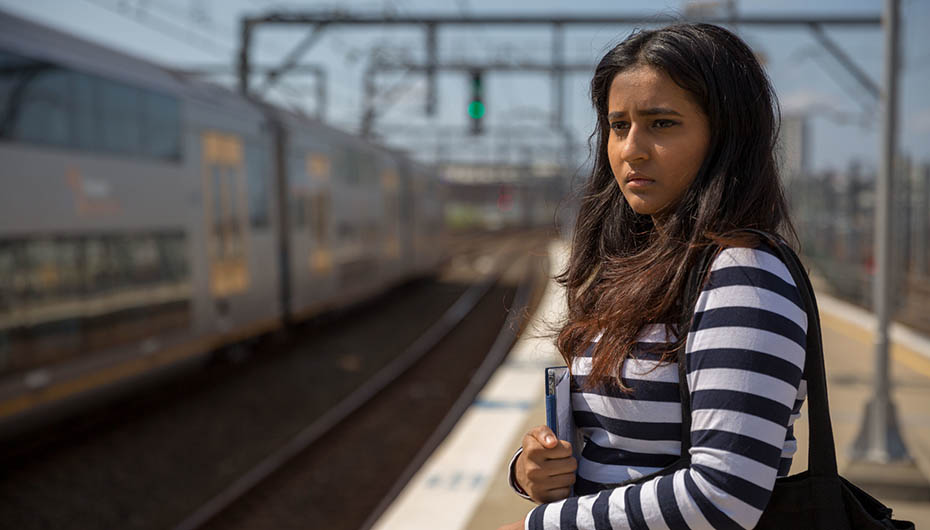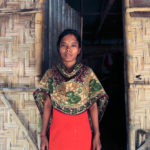Media Centre - Media release - 3 December 2019
Global study reveals failure of authorities to respond to street harassment

A major study on street harassment has revealed fewer than 1 in 10 incidents of sexual harassment in five cities around the world – including Sydney – were reported to an authority, and when they were, the vast majority were not acted upon or taken seriously.
The charity for girls’ equality, Plan International Australia, in partnership with Monash University, used crowd mapping technology to allow girls and women in five major cities to anonymously record incidents of street harassment, from cat-calling to stalking, threatening behaviour and physical and sexual assault, via its Safer Cities Free to Be project.
In 2018, young women and girls dropped 14,500 pins on city maps denoting specific incidents or ‘bad places’ in Sydney, Madrid, Lima, Kampala and Delhi.
The Reporting to Authorities report – launched today – shows that of those incidents, 1,270 were reported to authorities, but 852 (67%) of reports were not acted upon.
When it came to incidents that were sexual in nature, the response rate from authorities in Delhi was the lowest of all cities (2% of reports of sexual harassment were acted upon), followed by Lima (16%), Kampala (18%) and Madrid (32%). Sydney fared the best out of the five locations with one in three (34%) sexual harassment incidents reported to authorities resulting in some kind of action.
Across the five cities, young women noted that most responses from authorities were trivialised, with responses ranging from belittling, disbelief and dismissal, to further harassment from authorities themselves and a complete lack of justice, resulting in frustration and a lack of trust in the system.
The release of the Plan International Australia Reporting to Authorities report coincides with a major women’s safety symposium in Sydney yesterday (Monday 2 December) led by the Greater Sydney Commission, where a Charter for women and girls’ safety was announced.
Plan International Australia CEO Susanne Legena said the additional data in the report provides extremely valuable insight into why reporting rates are so low.
“Authorities need to pay attention to what’s happening here,” Ms Legena said. “It takes a lot of courage to report harassment, but it’s clear that even when girls do report, they are not taken seriously or the system isn’t set up to support them. Too many of these reports just fall into the cracks.
“For too long women and girls everywhere have just endured harassment as a normal part of their daily lives. They internalise it and over time, it begins to have a serious impact on their well-being. Girls and young women in our research told us loud and clear that when authorities fail to respond thoughtfully, sympathetically and supportively, it can be extremely damaging and harrowing for them.
“Trivialising or ignoring these experiences reinforces the belief that reporting is just not worth it and that girls and young women are unable to rely on others for support. This leads to an internalisation of stigma and shame, as well as propping up a toxic culture where street harassment is normalised and treated as trivial or minor.
“Our work with girls around the world has revealed that there are three clear steps to addressing this issue. Authorities need to encourage girls and young women to report instances of harassment, improve the responses they receive from authorities, and invest in public awareness and behaviour change campaigns.
“Our messages is that every single report needs to be taken seriously and the system needs to change to ensure there’s a clear process for reporting. Unless and until this happens, the cycle of underreporting, internalisation and social acceptance of street harassment will continue.”
Dr Nicole Kalms from Monash University’s XYX Lab in Australia led the analysis.
She added: “As this draws on the direct experiences of women and young girls, the findings give a solid base from which we can start to understand how authority responses are a barrier to reporting – whether those barriers are victim-blaming, fear that they won’t be believed or perceived lack of seriousness of the offence.
“Policy makers, city stakeholders and governments can use this data to develop awareness campaigns and better reporting systems which can positively shape women’s experiences in cities internationally.”
Plan International Australia is calling for the following actions to improve reporting outcomes for girls and young women:
- Authorities must invest in gender-sensitive education and training on street harassment and how to respond.
- Reporting systems must be clear and simple, have the option for anonymity and all reports must be taken seriously and treated with respect, regardless of the perceived severity of the incident.
- Clear pathways to report harassment must be set up and promoted, such as a dedicated email address, the introduction of a 24-hour sexual harassment reporting hotline or app.
- Authorities should invest in public awareness campaigns to encourage reporting of all forms of street harassment: even if they are not deemed ‘serious’, it all adds to the body of evidence.
- Governments should review current legislation to ensure perpetrators of street harassment are held accountable.
- Widespread education campaigns must make it clear harassment will not be tolerated and that women and girls should report, in addition to bystander campaigns to prevent the behaviour from occurring.
About Plan International Australia
Put simply, we’re the charity for girls’ equality. We tackle the root causes of poverty, support communities through crisis, campaign for gender equality, and help governments do what’s right for children and particularly for girls. We believe a better world is possible. An equal world; a world where all children can live happy and healthy lives, and where girls can take their rightful place as equals.
About Monash University’s XYX Lab
XYX Lab is a team of experienced design researchers exploring gender-sensitive design practices and theory based at Monash University’s Art, Design and Architecture faculty. Their work operates at the intersection of gender, identity, urban space and advocacy. Through their work, they bring together planners, policy makers, local government and stakeholders to make tangible the experiences of underrepresented communities in urban space and planning.
About the Safer Cities Free to Be project
Plan International’s crowd-mapping survey Free to Be enabled girls and young women to identify and share the location of public spaces that make them feel uneasy and scared or happy and safe, and detail the reasons why. The survey was designed in collaboration with Crowdspot, Monash University’s XYX Lab and young women, in alignment with Plan International’s values on research and advocacy in the best interests of the child. Read more about the results from this work in the Unsafe in the City report.
Media contacts


